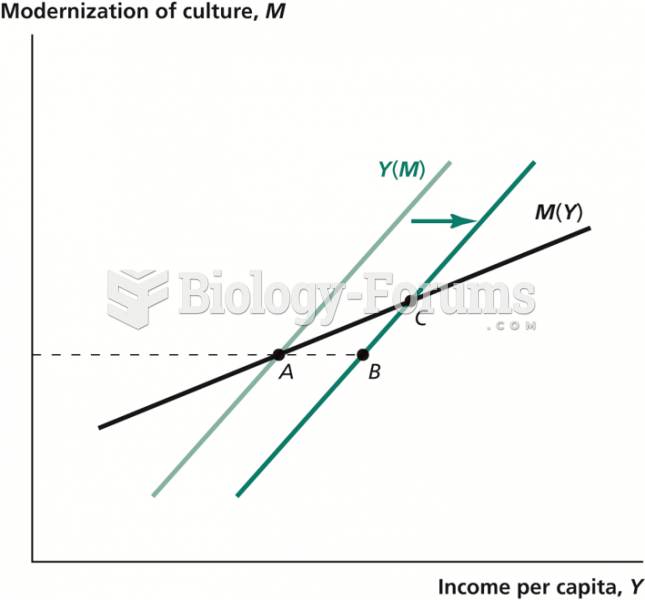|
|
|
People about to have surgery must tell their health care providers about all supplements they take.
If all the neurons in the human body were lined up, they would stretch more than 600 miles.
For pediatric patients, intravenous fluids are the most commonly cited products involved in medication errors that are reported to the USP.
There can actually be a 25-hour time difference between certain locations in the world. The International Date Line passes between the islands of Samoa and American Samoa. It is not a straight line, but "zig-zags" around various island chains. Therefore, Samoa and nearby islands have one date, while American Samoa and nearby islands are one day behind. Daylight saving time is used in some islands, but not in others—further shifting the hours out of sync with natural time.
The horizontal fraction bar was introduced by the Arabs.







